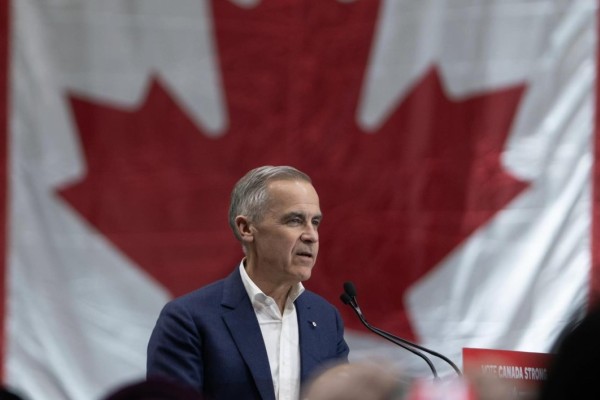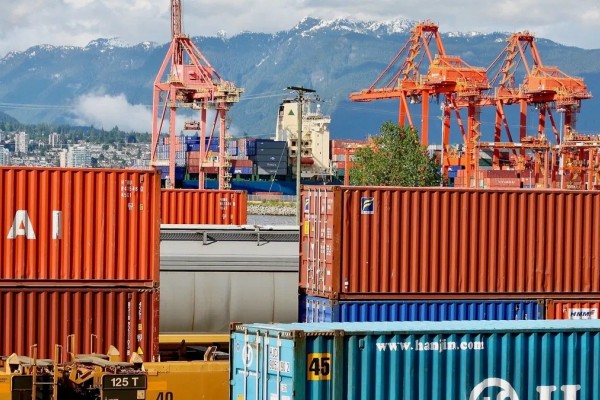Trump’s quest for a new Gilded Age
On the right-wing push for lucrative, tariff-driven recessions

A Gilded Age-era political cartoon captioned “History repeats itself” lampoons late-19th century economic policies for reproducing the grim social inequalities of the Middle Ages.
In a 2007 article in the Globe and Mail, Donald Trump mused about a possible economic downturn on the horizon and expressed his glee at the prospect. “I’m excited if it is,” he said. “I’ve always made more money in bad markets than in good markets.” Now with his hands on the political levers of American economic wellbeing, Trump seems to be hinting that these good old hard times are coming soon with tariffs as the key political tool for economic disruption. Is Trump deliberately pushing the US economy, and the wider global economy, towards recession?
Studies confirm that there are solid grounds for Trump’s attraction to the benefits of tariffs and the economic hardships they cause. Recessions tend to exacerbate inequalities and lead to more concentration of economic power. The wealthy are better positioned to capitalize on the opportunities opened by economic downturns, while ordinary individuals and families are forced to tighten their belts.
The reasons for this are fairly straightforward. During economic recessions, prices in a wide range of key assets such as real estate, stocks, and businesses decline. Homeowners are forced to default on mortgages, ordinary folk are financially strapped, and in order to weather the storm they are often forced to liquidate financial assets they may accumulated. Wealthy corporations and individuals with available capital are uniquely positioned to take advantage of economic downturns to scoop up valuable assets at bargain basement discount prices. Second, economic recessions lead to higher unemployment rates and significantly reduced bargaining power for workers. Wealthy employers and corporations use this to their advantage by negotiating lower wages and benefits to increase their profit margins. Third, wealthy individuals and corporations have far better access to credit and financial resources, even during economic downturns. This gives them additional leverage to invest and expand their holdings while others with little or no leverage face unforgiving creditors and banks breathing down their backs and demanding their due. Fourth, government policies implemented during recessions, such as bailouts and stimulus packages, typically rush to the aid of large banks and corporations and reinforce inequalities by providing additional financial resources for those already in an economically powerful position. Finally, recessions lead to the consolidation of industries as smaller businesses struggle to survive. Wealthy corporations absorb smaller struggling competitors, leading to increased market concentration and economic power in the hands of a few.
The last great “tariff” era in US economic policy was Trump’s beloved Gilded Age. Shortly after his election victory Trump proclaimed, “We were at our richest from 1870 to 1913. That’s when we were a tariff country.” He idolizes America’s ‘Tariff-King’ of the Gilded Age, President William McKinley, even renaming Denali, North America’s highest peak, to Mount McKinley. The Gilded Age was a time of extraordinary prosperity and power for the few, but also grinding inequality and growing impoverishment for millions who had to endure severe economic downturns, double-digit unemployment, inflated prices on commodities, and extravagant forms of political corruption driven by the quest for preferential treatment in the tariff-based revenue scheme. These policies led to economic hardship for ordinary folk, but a bonanza for the wealthy.
The Wall Street Journal warns that Trump’s “dumbest trade war in history” could lead to recession. But his policies might not be born out of ignorance, but cold-blooded tactics designed to advance the interests of those best positioned to take advantage of economic chaos. Trump has been dropping hints to his MAGA devotees that they will have to endure some pain. Republican Senator Tommy Tuberville of Alabama echoes these remarks, telling Democrats to “shut up” about possible negative effects with the retort “No pain, no gain.” But let’s not kid ourselves as to who will feel pain and who will gain.
What about the negative political ramifications of this strategy? Well, Trump is likely envisaging a win-win gambit both in terms of political as well as economic power. If economic hardship does become dire for large swaths of Americans, Trump appears to be all too ready to pull the national emergency alarm in order to concentrate coercive executive power into his hands and those of his billionaire war cabinet.
Daniel Cere is Associate Professor of Religion, Ethics and Public Policy in the School of Religious Studies at McGill University.










